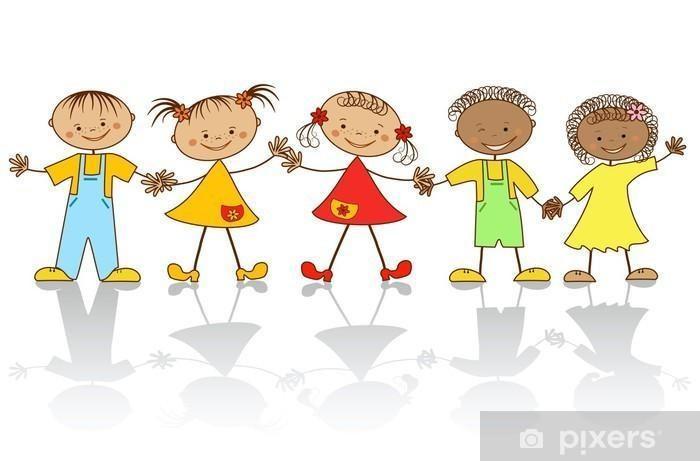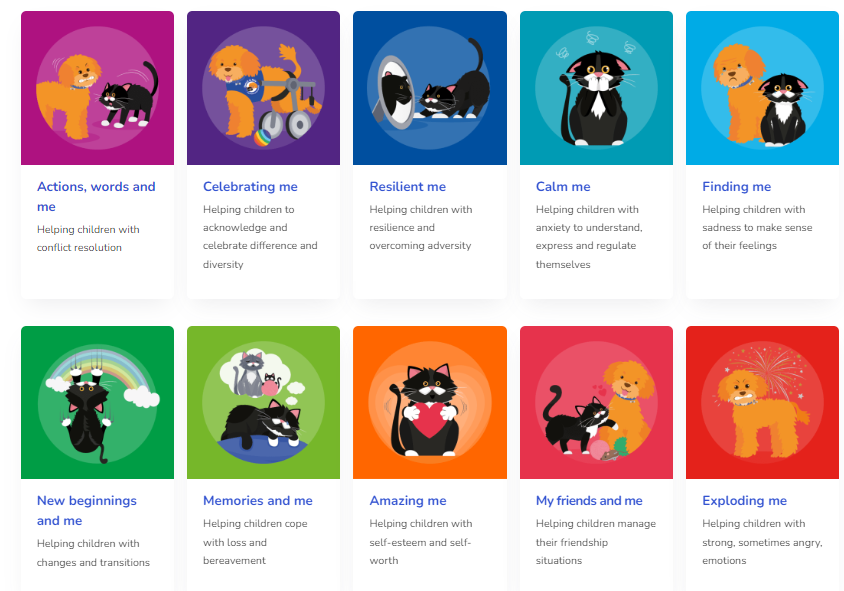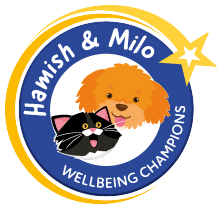Well-Being and Pastoral Support
At Tithe Farm Primary we are committed to supporting the emotional health and well-being of all our pupils, parents and staff. We understand that everyone experiences challenges in life that can make us vulnerable and, at times, anyone may need additional support in some way. We take the view that positive mental health is everybody’s business and that we all have a role to play.
Our dedicated Well-being and Pastoral Staff
|
Mrs Ryan |
Senior Mental Health Lead SEND
|
|
Mrs Molloy |
Children’s Mental Health First Aider Emotional Literacy Support Assistant Hamish and Milo Coordinator |
|
Mrs Maloney |
SEND |
|
Mrs Bowley |
Hamish and Milo Support Assistant |
|
Ms Oughton |
PSHE Leader
|
|
Miss Coker |
Forest School Leader (Whole class teaching)
|
|
Miss Coleman |
Forest School Leader (Whole class teaching) |
Personal Development including Graduated Response
Local Resources and Useful Websites
CHUMS
Mental Health & Emotional Well-being Service for Children and Young People provides therapeutic support in a variety of ways to young people.
Website: https://https://chums.uk.com/
SORTED/FORTIS
Sorted offers a free and confidential counselling service for young people aged 5-25
Website:https://sortedbedfordshire.org.uk/
Central Bedfordshire Youth Services
Information and Services for young people
Website: https://www.centralbedfordshire.gov.uk/info/113/youth_services
Family Lives
Online parenting advice and support.
Website: https://www.familylives.org.uk/
ChildLine – 0800 1111
Talk to a counsellor for free anytime by calling 0800 1111. You can also log in for 1:1 chat.
Website: https://www.childline.org.uk/
YoungMinds Crisis Messenger – Text ‘YM’ to 85258
A free crisis messenger service – support across the UK. If you are experiencing a mental health crisis and need support, you can text YM to 85258
Samaritans – Call 116 123
Talk to a trained volunteer anytime for free non-judgemental support.
NHS direct – Call 111
NHS direct can help if you have an urgent medical problem and you are not sure what to do
Accident and Emergency
If you feel you cannot keep yourself safe, it is best to attend your local A&E so they can help to keep you safe.
Emotional Literacy Support Assistant : ELSA
WELCOME!
Hello and welcome to our school ELSA page.

What is ELSA?
There will always be children and young people in school that face life challenges that affect their ability to engage in learning. ELSA is an initiative developed and supported by Educational Psychologists to help schools support the emotional needs of students in their care. Research has shown that children are more able to learn and feel happier if their emotional needs are addressed.
ELSA support is about developing a respectful relationship in which the young person is enabled to think about their situation without judgement or criticism. Rather than teaching and telling them what to do, it is facilitating greater self-awareness in pupils and helping them to achieve their own solutions and coping strategies. Sessions are designed to be fun using a range of activities including games, stories, mindfulness and arts and crafts.
Most ELSA work happens on a 1:1 basis, but sometimes small group work may be more appropriate to support social and friendship skills. Sessions will take place in our ELSA space, providing a calm and safe place in which children feel supported and nurtured.
ELSA aims to provide support in these areas of emotional needs:
Recognising emotions
Self-esteem
Social Skills
Friendship skills
Anger management
Loss and bereavement

Who is our ELSA?
Our Emotional Literacy Support Assistant (ELSA) : Mrs Molloy
I am excited to be an ELSA. I have been trained by and will receive ongoing supervision from Educational Psychologists to plan and deliver programmes of support to pupils who are experiencing temporary or longer term additional emotional needs. I am an active part of our school, and you will often find me at the school gates in the morning to welcome parents, carers and children into our school. I can also be contacted through the office, by email or by phone.
My role as an ELSA is to help children and young people learn to understand their emotions and respect the feelings of those around them. Time and space will be provided for pupils to think about their personal circumstances and how they manage them.
ELSA - Supporting not fixing
The ELSA isn’t there to ‘fix’ the child. For pupils with complex or long-term needs, it’s unrealistic to expect ELSA support to resolve all their difficulties. Training and development of ELSA's is an ongoing process and when issues are beyond their level of expertise that could not be reasonably be expected of an ELSA the supervising psychologist will be able to offer advice on the suitability of ELSA support. For complex cases, our school supports parents with referrals to specialist agencies if appropriate.
I can provide emotional support and aim to establish a warm, respectful relationship with a young person and to provide a reflective space where they are able to share honestly their thoughts and feelings. By building a positive relationship with children, this can help them think about their behaviours, worries and anxieties.
How does ELSA work?
Children needing additional support are referred to by their class teachers. Based on the aims of the programme, sessions are then planned to help the child to develop specific new skills or coping strategies that can help them manage social and emotional demands more effectively. The programme last between 6–12 weeks.
ELSA work is fun
– that’s what makes the difference. It isn’t a reward for bad behaviour. By building a positive relationship with challenging children, ELSA can help them think about and reduce their troublesome behaviour. It will take time, but it will be worth it in the end.
As a parent/carer, how can you help?
By informing the class teacher if there are any issues that may be affecting your child.
Hamish and Milo
Wellbeing intervention programme
Hamish & Milo is a comprehensive SEL and SEMH intervention programme to support a whole school graduate response to support the high level of primary-stage children with SEMH difficulties.
We provide the framework, language and content for courageous conversations about mental health and emotions and the structure to support children’s emotional and social development. The complete programme enhances PSHE and focuses on ten key emotional themes; friendship, resilience, anxiety, diversity, strong emotions and anger, change and transition, conflict resolution, loss and bereavement, sadness and self-esteem.


